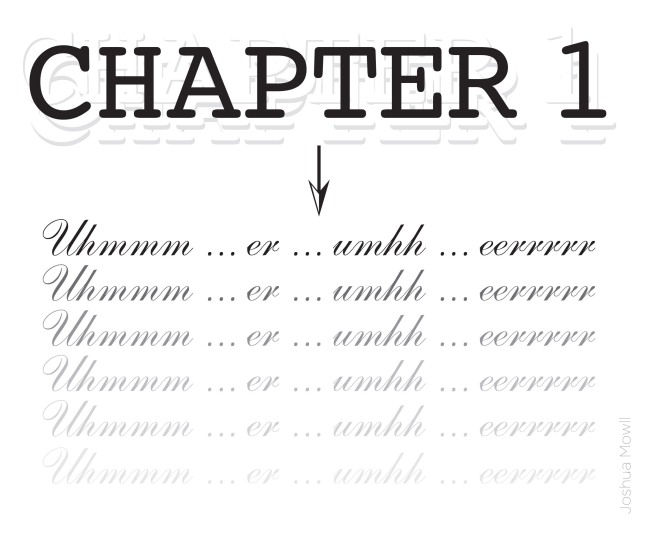If 2014 is the year you decided to write a novel and you’re already stuck on chapter one, here are my top ten ways to help you over the first hurdle:
1. Don’t start with chapter one, start by doing lots of planning. This might not feel like writing a book, but it is. This way you’ll know exactly what it is you’re trying to achieve in chapter one, rather than driving blindly into a snowstorm hoping to reach a destination. Writing the first chapter is a lot easier if you know what happens in the final chapters of your book.
2. For a first time novelist, it is easy to be put off by what you initially produce. In your imagination you had expected to see award-winning prose flowing from you as if a vast and untapped literary dam had just been breached. Maybe your first page is not that good. The self-doubt sets in. This is not a book you would buy, so why continue? Rest easy. It will feel very strange to see your first novel emerging on the page. Be encouraged that you are actually sitting down to write. The polishing can come in later drafts.
3. Writing your first novel is like being given a very powerful and complex motor vehicle to drive. The only way to learn to write is to write. Lots. Very much like driving, it will get better and it will get easier with experience. Don’t expect too much at first. It is more important to be making forward progress than editing and re-editing four sides of A4 until you get bored and decide writing probably isn’t for you. Keep draft one progressing at steady rate. Learn by making some mistakes.
4. A first draft is not a novel, it’s a testbed for ideas. Chapter one will go through several later drafts, so don’t put too much pressure on yourself.
5. In the later stages of the editing process, I’ve found chapter one often needs to be heavily rewritten to accommodate new themes, characters, plot lines and creative directions discovered during the first draft writing process. Don’t give up because you loathe your first attempts at crafting the first chapter. You could be abandoning a perfectly viable story for no good reason.
6. First night nerves: If you are really having problems opening your book, why not start at chapter two and then going back to write chapter one towards the end of the first draft process. If you have done enough planning (see point 1 above) then you will know where the story should be by chapter two. Go from there and see what happens.
7. Don’t overload chapter one with exposition (history lessons and info dumps). Get on with the story. Engage the reader. Make something happen to your main character which will fundamentally alter their life. We don’t need to know where they grew up, or the history and political machinations of the 14th Orc War. We are more interested that your main character has just discovered they were adopted at birth, or that they’ve suddenly lost the ability to read people’s minds. You are sending your character on a journey. Chapter one is the jumping off point rather than a place to laboriously explain the world in which they live.
8. If you are going to tell some extremely tall tale, such as your narrator does indeed have the ability to read minds, get this extraordinary character trait out in chapter one. The later you leave it, the less believable it will become. Your reader can relax, accept this as a reality within your story, and then not worry about it because it’s clearly going to be a fundamental building block for the rest of the book.
9. You have about 60 pages to captivate a reader. Spend them very wisely.
10. If you are still not making progress, then go back and do more planning. Chapter one should be a hurdle, not an impenetrable barrier. Work out what story you are trying to tell rather than working out how to write a good opening chapter: the story is more important and should control chapter one, not vice-versa.

